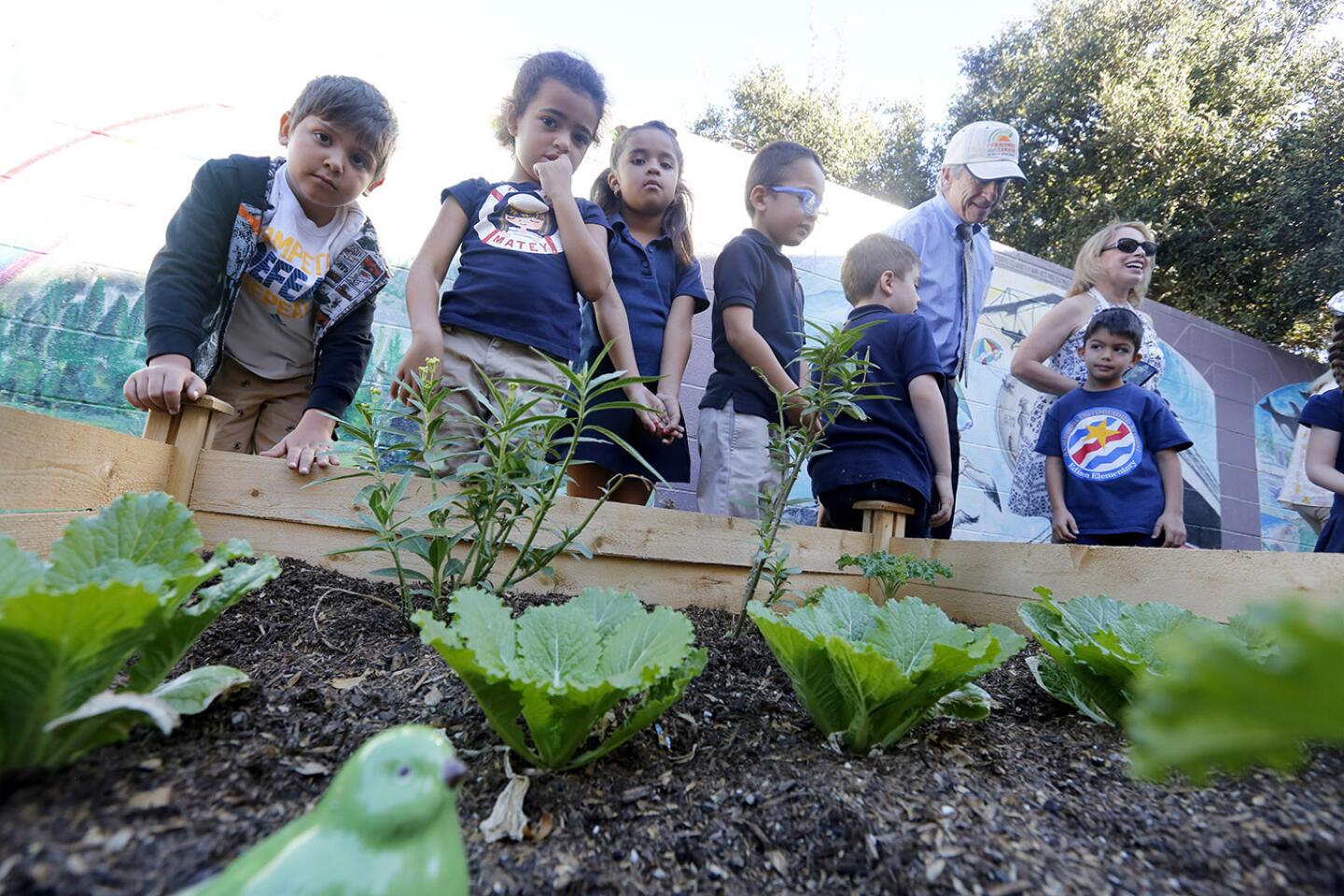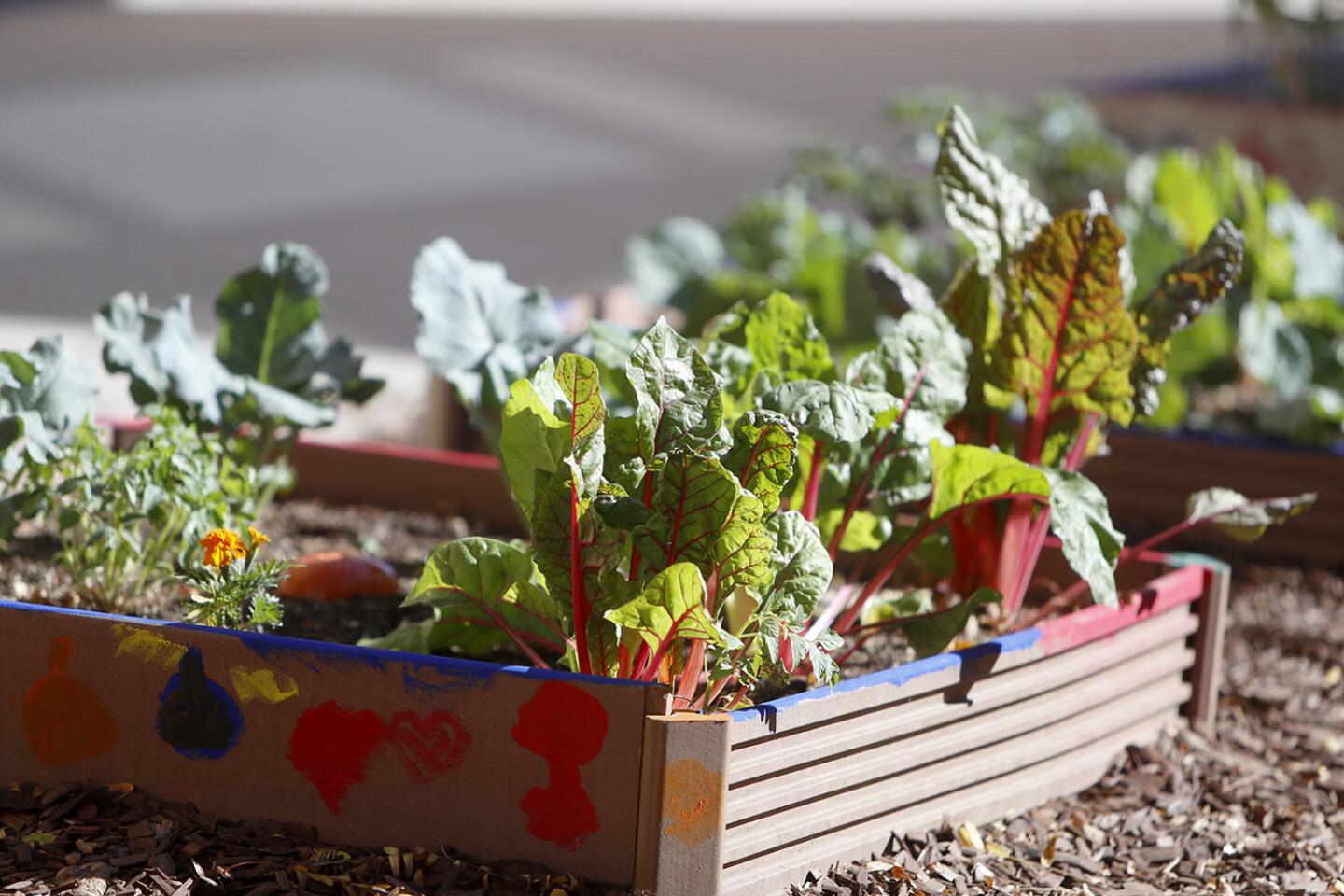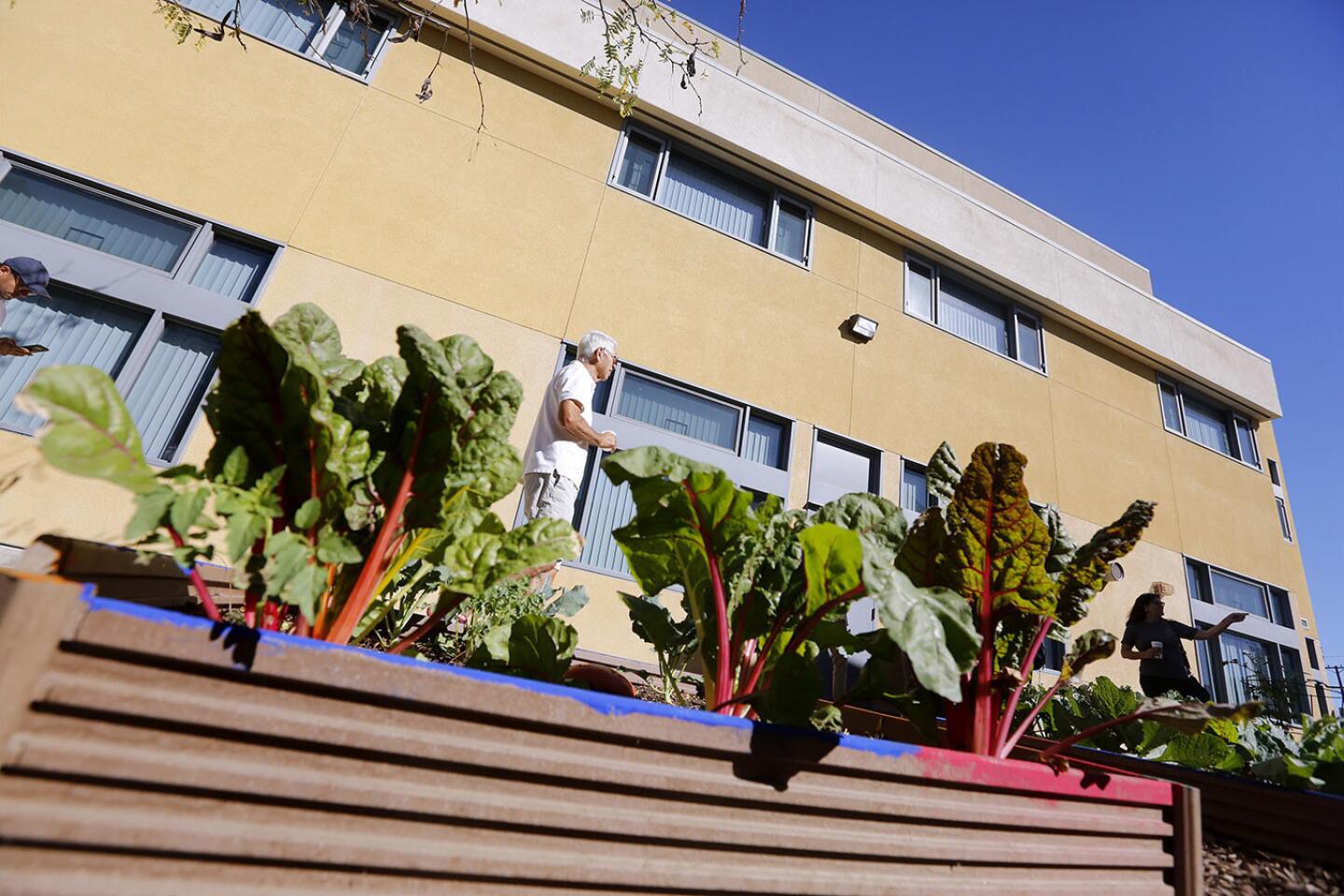Edison Elementary School debuts student-run vegetable garden
Thomas Edison Elementary School unveiled its student-run vegetable and herb garden Tuesday, which provides a hands-on experience for students, while learning about healthy eating and nutrition.
The garden was planted last month as part of a program by the Adventist Health Glendale Foundation to bring students closer to their food through gardening. Along with tending the garden, students learned about healthier eating habits that can combat childhood obesity as well as other health issues.
Funds for the program were provided, in part, by the Adventist Health Mission Fund, which contributes to community initiatives, and California Champions for Change, a government organization that helps educate families about how to lead a healthier lifestyle.
Martha Rivera, the foundation’s outreach director, said she asked Carmen Labrecque, Edison’s principal, to incorporate a garden into ongoing lessons about nutrition.
“[Foundation members] had a focus group with the teachers, and they were very enthusiastic about the idea, and so we put together this garden to teach about good nutrition,” Rivera said.
With the help of about 15 volunteers, many from the Kiwanis Club of Glendale, foundation members cleared a grass area at the school, built wooden boxes to house the gardens and filled them with soil.
Once the garden was in place, Karla Cailean, a health educator with Adventist Health, joined Rivera and two other Adventist mentors to conduct outdoor classrooms twice a week — kindergartners on Tuesdays and students in first through sixth grades on Wednesdays — where they helped students tend the garden as well as learn about nutrition and exercise.
Cailean, also a trained chef, said once the plants in the garden are ready, they’ll be used in healthy recipes for the students to eat.
Vittorio Salazar, a kindergarten teacher at Edison, said the garden gives his 25 students an opportunity to “get their hands dirty” and actually see the process of how food grows.
“For many of them, they just think that this food comes from a store,” Salazar said. “[The garden] teaches them that there’s this process where you actually have to take care of the plants and later on harvest [them] ... They love it.”
Twitter: @JeffLanda








